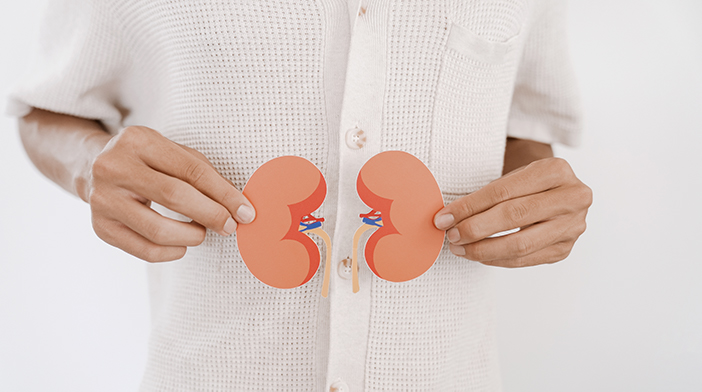
Understanding Kidney Stones
Kidney stones, medically known as nephrolithiasis, are a common and often painful condition.They are hard, crystalline mineral deposits that form inside your kidneys and can vary in size from a grain of sand to a golf ball. While they can be intimidating, understanding what they are, what causes them, and how to manage them can make a significant difference. Key Causes and Risk Factors Kidney stones form when your urine contains more crystal-forming substances—such as calcium, oxalate, and uric acid—than the fluid in your urine can dilute. At the same time, your urine may lack substances that prevent these crystals from sticking together. The most significant risk factor is dehydration.1 Not drinking enough water is a leading cause, as it concentrates the urine and makes it easier for crystals to form. Other common risk factors include:- Dietary factors: A diet high in sodium, animal protein, and oxalate-rich foods (like spinach, nuts, and chocolate) can increase your risk.
- Medical conditions: Conditions such as obesity, inflammatory bowel disease, and chronic urinary tract infections can predispose you to stones.
- Genetics: A family history of kidney stones can increase your likelihood of developing them.
- Certain medications: Some diuretics and calcium-based antacids can contribute to stone formation.
- Painful or burning sensation during urination.
- Pink, red, or brown urine (due to blood).
- Cloudy or foul-smelling urine.
- Nausea and vomiting.
- Persistent urge to urinate.
- Blood tests: This can be useful to check the kidney function especially if there is a blockage of the urinary tubes. They can also assess the severity of any concurrent infection, or look for abnormalities in the blood that can increase the risk of stone formation
- Urine tests: These are commonly performed to look for infections, which should be treated.
- Imaging: Depending on the situation, X-rays, ultrasounds, or CT scans may be used to diagnose the presence of urinary stones. In terms of sensitivity, a CT scan would be the most sensitive in diagnosing even the smallest of stones. After stone treatment, ultrasound or X-rays may be sufficient to monitor for recurrence.
- Specialised urine tests: After a stone has been removed or passed, a special panel of urine tests called 24-hour urine metabolic workup can be useful to look for abnormalities in the urine that can increase the risk of future stone recurrence. Based on the results, your doctor can recommend dietary or medical interventions to reduce the risk of stone recurrence.
- Small asymptomatic stones: Many small stones can pass on their own. Increasing your water intake and taking medication to aid in stone passage can help for treatment of these ureteric stones.
- Other stones: For most stones above 4mm in size, they are likely to cause symptoms or not pass naturally. If the stone is causing severe or recurrent pain, blockage of the kidney, or there are stones blocking both kidneys, then early treatment is recommended to prevent complications such as kidney failure.
- Several surgical procedures are available. They can usually be performed as day surgery or involving one overnight stay in the hospital:
- Extracorporeal Shock Wave Lithotripsy (ESWL): This non-invasive procedure uses high-energy sound waves to break the stones into tiny pieces that can then be passed in the urine.
- Ureteroscopy: A surgeon inserts a thin, flexible scope through the urethra and bladder to the ureter or kidney. The stone(s) can be captured in a basket or broken up with a laser. After the procedure, a ureteric stent may be inserted to facilitate healing of the ureter.
- Percutaneous Nephrolithotomy (PCNL): This is a surgical procedure for larger stones or stones located in a part of the kidney that is difficult to reach by other means. A small incision is made in the back to directly access the kidney and remove the stone.
- Hydration is key: The most crucial step is to drink plenty of fluids, especially water. Aim for enough water to keep your urine light and clear.
- Watch your diet: Limit sodium intake and reduce animal protein. If you have a history of calcium oxalate stones, your doctor might advise you to reduce foods high in oxalates, but this should be done under medical guidance.
- Maintain a healthy weight: Obesity is a significant risk factor, so maintaining a healthy body weight is important.
- Severe pain that does not respond to medications or requires constant use of painkillers
- Fever and chills, especially with pain.
- Nausea and vomiting that prevents you from keeping fluids down.
- Difficulty or inability to urinate.
- Mayo Clinic – Kidney stones. https://www.mayoclinic.org/diseases-conditions/kidney-stones/symptoms-causes/syc-20355755 Accessed 11 August 2025
- European Association of Urology Guidelines on Urolithiasis (2025) https://uroweb.org/guidelines/urolithiasis/chapter/introduction Accessed 11 August 2025
- Daudon M, Jungers P, Bazin D, Williams JC Jr. Recurrence rates of urinary calculi according to stone composition and morphology. Urolithiasis. 2018 Oct;46(5):459-470. doi: 10.1007/s00240-018-1043-0. Epub 2018 Feb 1.

